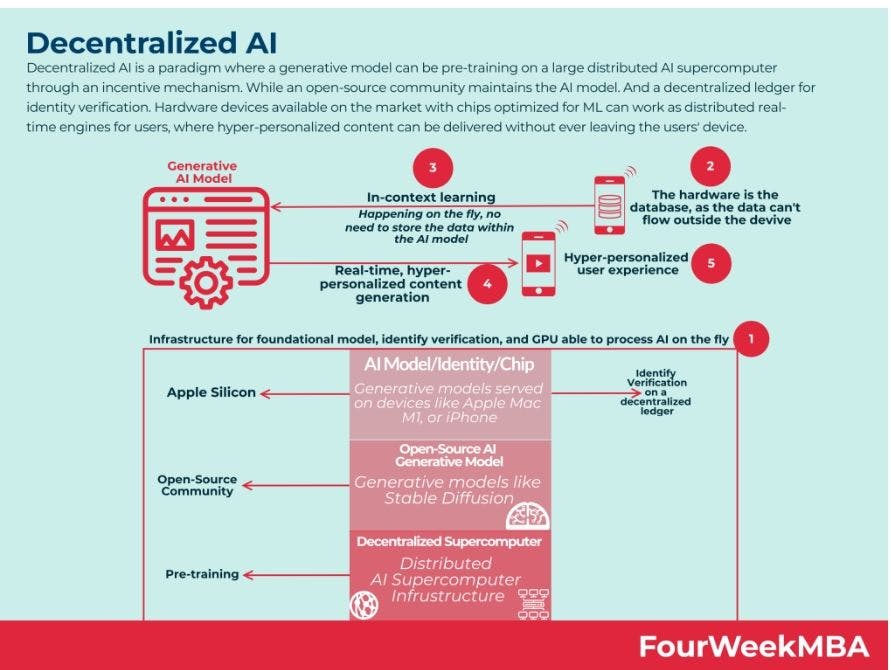
2024-11-14 12:0:10 Author: hackernoon.com(查看原文) 阅读量:1 收藏
Samsung, the world's second largest technology company by revenue, recently unveiled its plan to build the first AI-powered home appliances to have blockchain security-grade architecture. In other words, the tech giant is planning to leverage its Knox Matrix security framework to create a ‘Trust Chain”, in a bid to secure connected devices in smart homes.
This, like many other instances, is clear proof of the growing intersection between AI and blockchain technology, which is often marked by the pronounced interest of tech companies in blockchain solutions. It reinforces the theory that AI needs blockchain and vice versa. (Put simply, intelligence needs trust to thrive).
In the words of Peter Kyle, UK’s Secretary of State For Science And Technology:
AI has the potential to improve our public services, boost productivity and rebuild our economy. But to take full advantage, we need to build trust in these systems.

Moreover, AI needs not just trust but it also needs decentralization to thrive. With decentralized AI, we can securely and efficiently distribute AI data against the background of centralized rules, thus enabling us to break free from centralized AI platforms commonly referred to as ‘AI data silos”.
Dismantling AI Ecosystem's Bottlenecks
AI must be built on trust and decentralization. The reasons are straightforward. In traditional AI systems, large corporations wield significant control over the distribution and accessibility of AI data.
This centralized control is a bottleneck to AI development because it practically limits the potential of AI systems to learn from a diverse range of comprehensive datasets, thus hindering innovation in various industries where AI is used.
Additionally, the lack of user control over their sensitive data has brought the issue of users’ privacy to the fore, making it one of their core underlying issues in AI development. Given the tendency of giant tech companies to cross the line by breaching users' privacy, the need for a collaborative AI ecosystem built on users’ privacy and ownership has become more apparent than ever.
Furthermore, the centralized storage of AI data also poses a significant challenge to its accessibility. A decentralized AI data storage, however, opens up access to multiple stakeholders working in the AI industry, improving the quality of AI data and the sophistication of its end users.
A general example of the collaborative approach to data storage and accessibility is DePIN platforms which allow users to rent out their computing resources in return for tokenized rewards. These platforms incentivize users to individually participate in the distribution and cloud storage of heavy data loads on a decentralized network.
Filecoin, Storj, Airweave, and Zetta AI, for example, reward users for contributing to a decentralized data economy, enabling the coordination of a global network of contributors—from developers to enterprises—to build, share, and be fairly rewarded for high-quality AI asset contributions while maintaining ownership, privacy, and control.
Benefits of Decentralized AI
Decentralized AI offers numerous advantages when compared to traditional data storage systems, which are often criticized for their centralization, limited accessibility, and breach of users’ privacy. Some of these benefits include :
Data Quality
As Jeff Dean rightly put it:
The quality of your data determines the quality of your AI.
Enabling AI models to learn from a wider comprehensive dataset can significantly improve the quality and output of AI data, thus creating more sophisticated AI data repositories for various stakeholders in the industry.
Decentralized Ownership
The beauty of decentralized AI is its ability to foster decentralized ownership of data while preserving users’ privacy and security. Centralization is a far cry from these attributes because it allows few platforms with significant resources to determine how AI data is stored and used.
Collaboration and Incentive
Decentralized AI fosters open collaboration among the various participants in a decentralized network by rewarding collaborative data sharing and participants’ contributions to AI model development. Tokenized rewards (i.e. tokens) are fairly distributed to users as incentives.
Increased Transparency and Trust
Decentralized AI fosters transparency, which involves recording all transactions and decision-making processes on a blockchain.
Blockchain has the ability to ensure that AI data is traced and verified. The traceability and transparency of AI data is crucial in building trust with users as it enables them to understand how their data is used. This is a stark contrast to centralized platforms where users have little or no knowledge of how their data are used.
Democratized AI development
Famous AI advocate, Cathy O Neil, once said:
Decentralized AI is a powerful tool for democratizing access to AI technology. By breaking down the barriers of centralization, we can empower individuals and communities to develop and deploy AI solutions that address their specific needs.
The development of AI is dependent on the diversity of its learning models. It's vital to train AI systems from multiple rather than a single data set to enhance their performance and the quality of data across various industries.
Conclusion:
Building a responsible, efficient, and inclusive AI ecosystem is at the heart of decentralized AI. Moreso, it is a paradigm shift from centralized control of vital AI data hindering the further development of AI models.
By encouraging decentralized data sharing and storage, it increases accessibility and foresters a collaborative approach to improving the quality of AI data. Most importantly, decentralized AI is poised to help AI to unlock its full potential and serve the various needs of individuals and organizations.
如有侵权请联系:admin#unsafe.sh